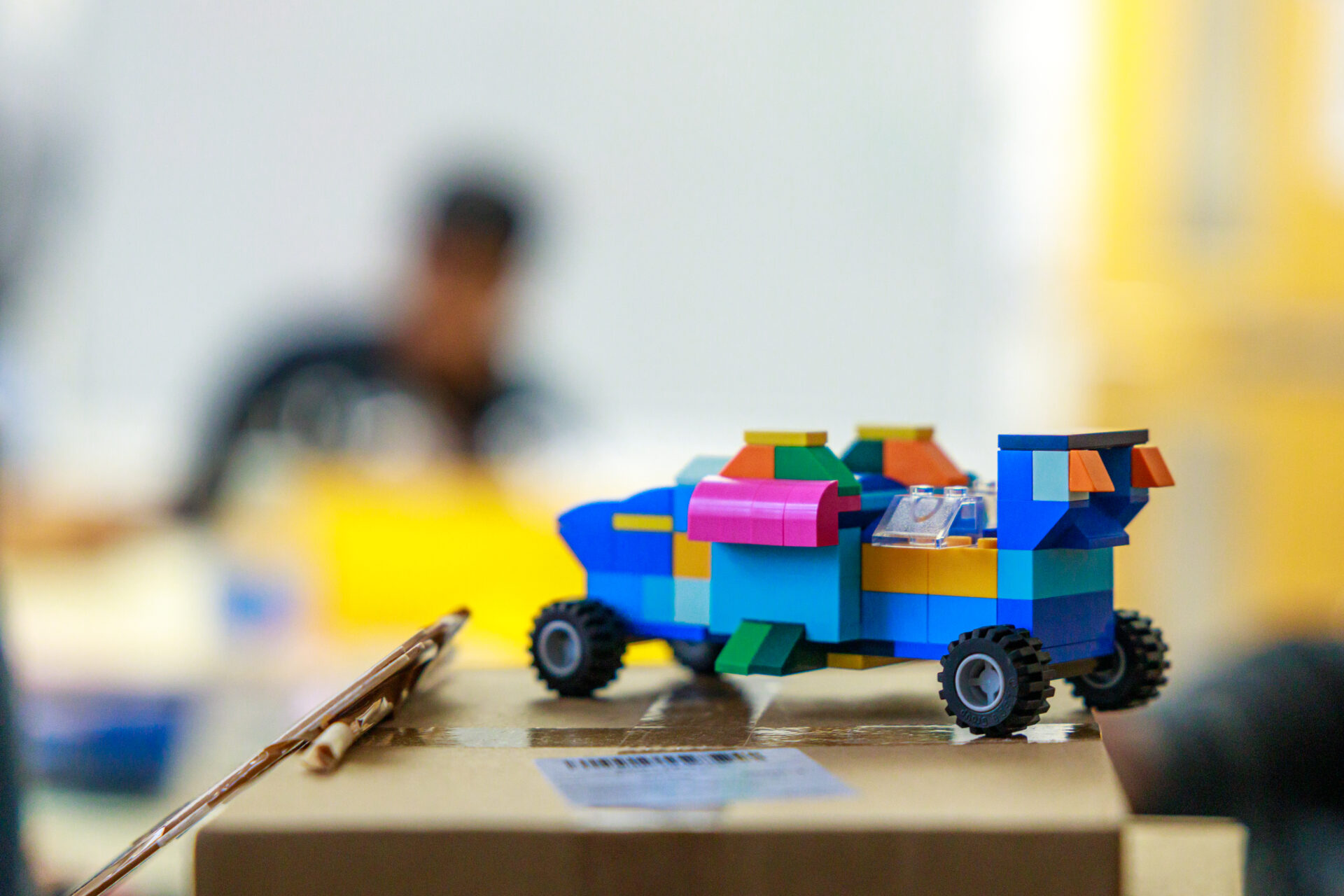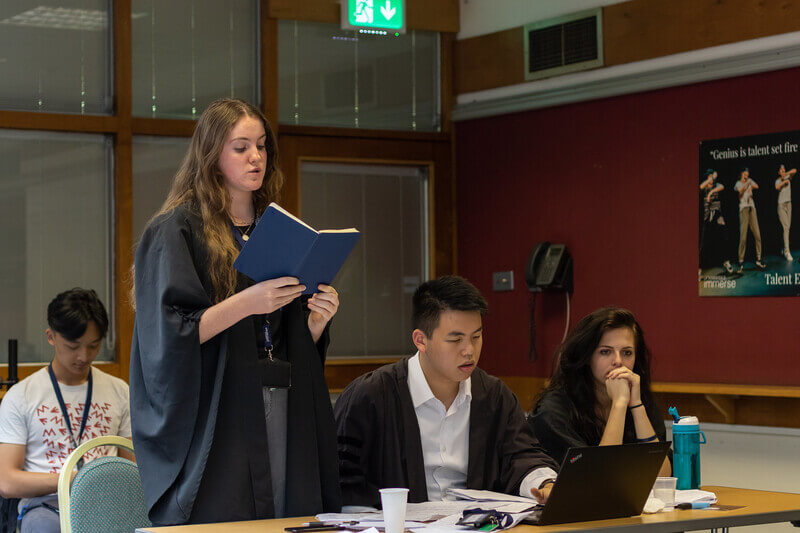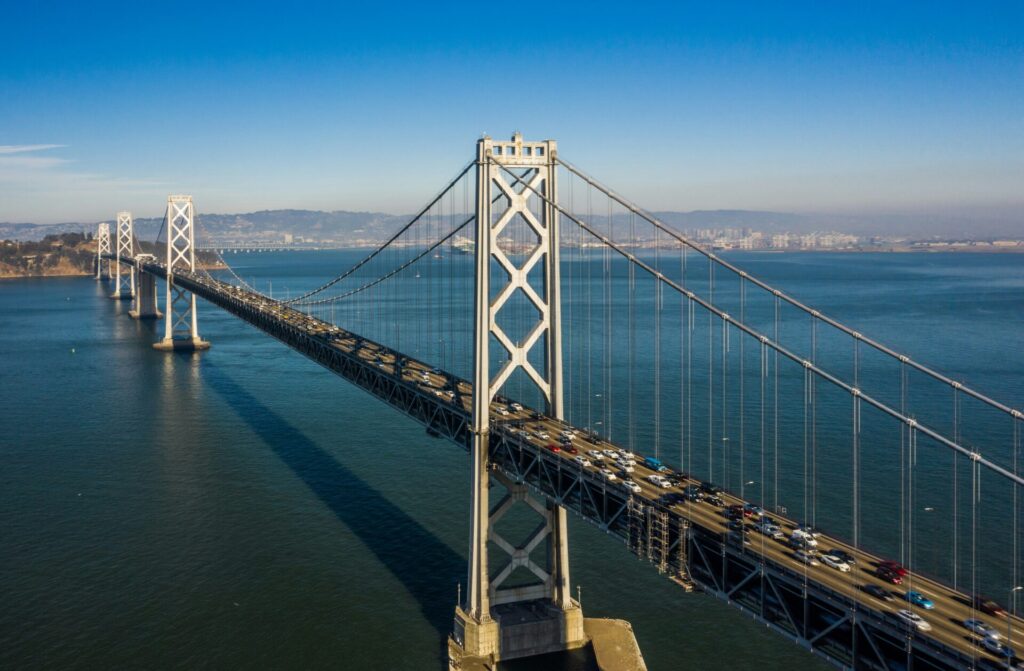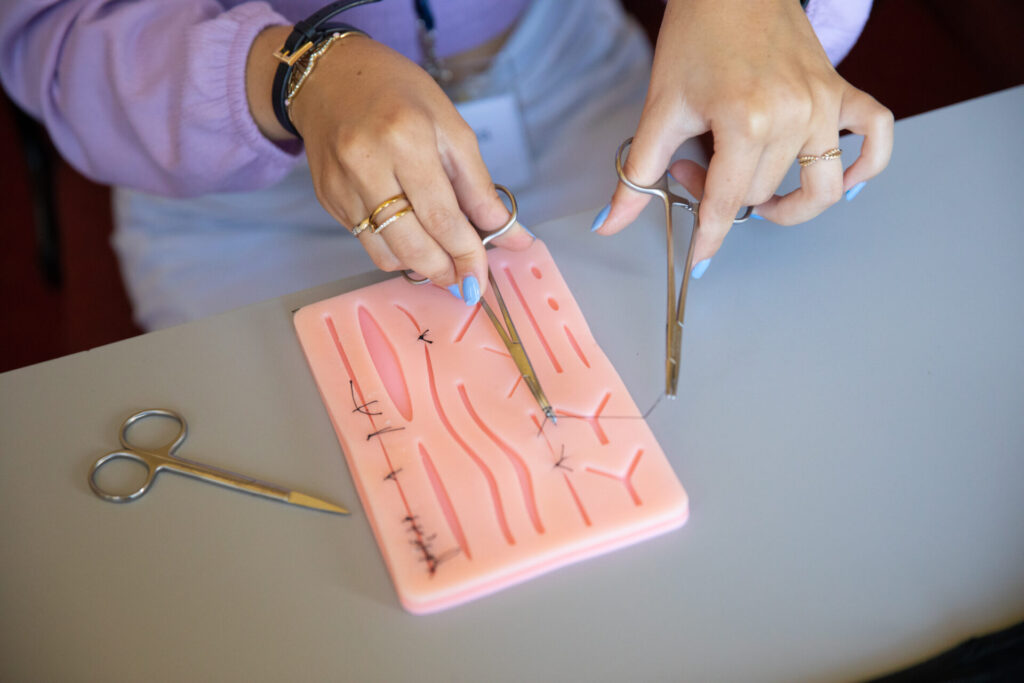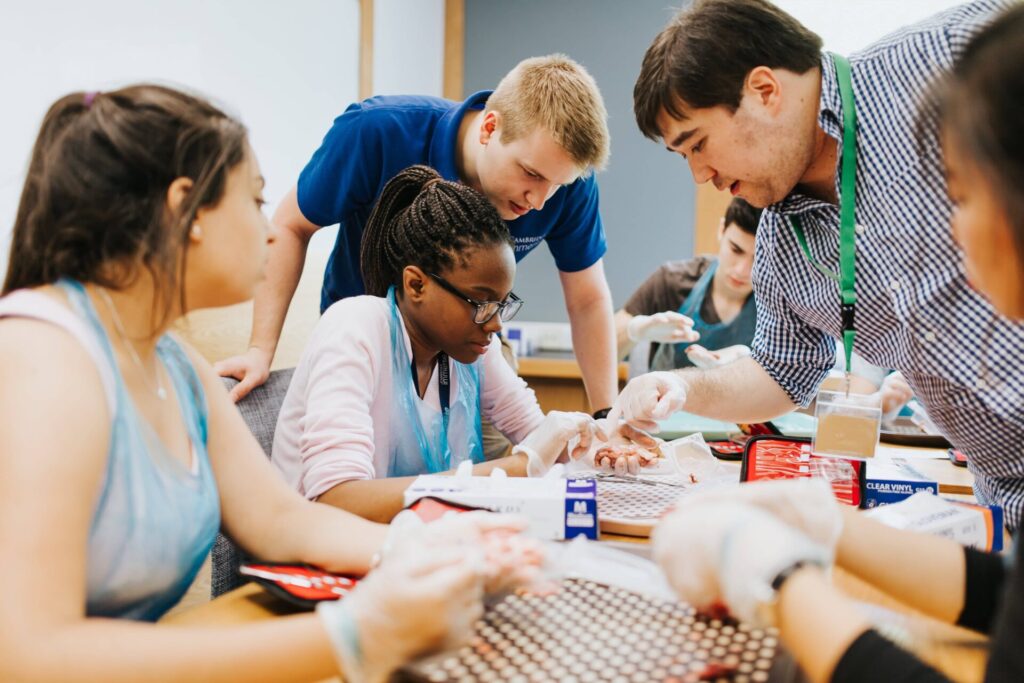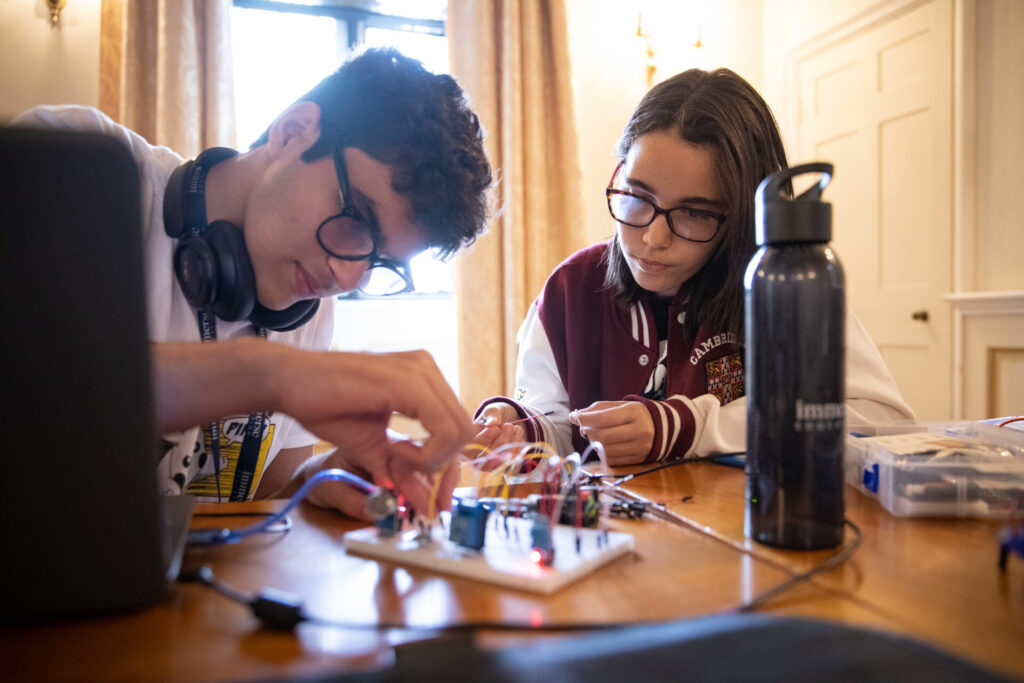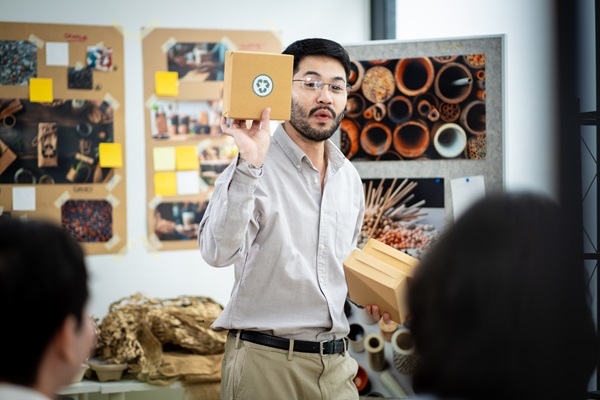For Year 12 students passionate about STEM, pursuing engineering work experience in year 12 is a transformative opportunity. Alongside options like an online summer school or an engineering summer school, work experience can help you explore your interests and build confidence in your future pathway.
Whether you’re drawn to designing machinery, innovating within the aerospace industry, or exploring chemical processes, work experience can shine a light on your potential career pathways. However, with so many specialties within engineering, it’s important to understand what each offers and how to make the most of these opportunities.
This guide dives into everything you need to know, from the benefits and application process to the crucial differences between disciplines like chemical, aerospace and mechanical engineering work experience for year 12.
Who Should Apply for Engineering Work Experience in Year 12?
Do you love science experiments, solving technical problems, or working on innovative ideas? If so, completing engineering work experience in year 12 could be the perfect match for you. It’s particularly suited to students who are curious about how things are created, tested, and improved.
You’ll benefit from engineering work experience if you enjoy subjects like:
- Mathematics and Physics, which are fundamental to many engineering specialties.
- Chemistry, especially for aspiring chemical engineers.
- Design & Technology, perfect for hands-on, creative problem solvers.
If you’ve participated in STEM-related extracurriculars such as robotics clubs, coding workshops, or science fairs, engineering placements can take your passion to the next level, giving you real-world exposure to what engineers do. Even students still exploring their interests in STEM can gain clarity by experiencing various fields in action.
What Happens During Engineering Work Experience in Year 12?
Engineering work placements are designed to introduce you to the practical side of STEM, which often goes beyond what you learn in the classroom. While the specifics vary depending on the company and specialism, here’s an overview of what you might encounter:
Typical Activities and Responsibilities:
- Shadowing Engineers: Observe professionals as they model designs, solve technical issues, or oversee projects.
- Hands-On Experience: Some placements may allow you to engage in activities like basic CAD (Computer-Aided Design), running simulations, or assisting with experiments.
- Research and Problem-Solving: You could get involved in analyzing data, brainstorming solutions to challenges, or researching issues relevant to the project.
- Team Collaboration: Attend meetings or workshops where you’ll see how engineers from different teams pool their expertise.
- Site Visits: For some roles, especially aerospace or mechanical placements, you could visit manufacturing plants, assembly lines, or testing facilities.
Work Environment Insights:
Gaining experience within an engineering firm exposes you to the tools, workflows, and culture of working in STEM. This glimpse into professional life can help you assess whether the fast-paced and innovative environment is right for you.
Key Differences Between Chemical, Mechanical, and Aerospace Engineering Work Experience
Engineering is a vast and diverse field, with each specialism offering unique approaches and challenges. Here’s a breakdown of the three highlighted domains.
Chemical Engineering Work Experience in Year 12
Chemical engineering focuses on transforming raw materials into useful products, often through chemical processes. During your placement, you may:
- Learn about chemical reactions in industrial processes like producing plastics, fuels, or pharmaceuticals.
- Observe engineers designing systems to optimise production while ensuring safety and environmental sustainability.
- Conduct small experiments or work with lab equipment to analyse samples.
Chemical engineers often work in labs, chemical plants, or offices, making their work varied and exciting for scientifically inclined students.
Mechanical Engineering Work Experience in Year 12
Mechanical engineering involves designing and manufacturing machines like engines, robotics, or turbines. During this placement, you might:
- Work on 3D CAD software to create models for prototypes.
- Visit manufacturing sites to see how machines are built or maintained.
- Participate in troubleshooting and improving machinery efficiency.
If you’re hands-on and enjoy building or fixing things, this specialisation offers plenty of opportunities to test your skills.
Aerospace Engineering Work Experience in Year 12
Aerospace engineers focus on aircraft, spacecraft, and everything in between—from design to performance testing. During an aerospace placement, activities might include:
- Assisting with aerodynamic testing in wind tunnels or analysing flight data.
- Learning about propulsion systems and guidance technologies.
- Working alongside teams focused on innovation in drones or space missions.
This field is ideal for students fascinated by space exploration or aviation advances.
Join the Immerse Education 2025 Essay Competition
Follow the instructions to write and submit your best essay for a chance to be awarded a 100% scholarship.

How Year 12 Engineering Work Experience Prepares You for STEM Careers
Engineering placements can provide you with the tools, experience, and motivation to excel in STEM careers. Here’s how they make a difference:
Transferable Skills
- Problem-Solving: Learn to break down complex challenges and create innovative solutions.
- Analytical Thinking: Use data to evaluate systems and outcomes critically.
- Technical Knowledge: Familiarity with software like CAD or exposure to lab equipment often becomes second nature.
- Collaboration: Gain experience working as part of a team to complete projects under time constraints.
- Adaptability: Practical tasks teach you to think on your feet and adapt to changing project demands.
Networking Opportunities
Work placements allow you to meet industry professionals who can offer valuable advice, mentorship, or even recommendations for future studies or jobs.
Career Clarity
Early exposure to engineering specialties through focused activities in chemical, mechanical, or aerospace fields can help you confirm your path or even change your focus.
Benefits of Completing Engineering Work Experience in Year 12
Wondering if the effort is worth it? Here are some of the top reasons to pursue engineering placements in Year 12:
- Boost Career Prospects: Universities and employers value apprenticeships and experience, making your CV or personal statement stand out.
- Build Confidence: Taking on challenges in a professional setting instills a sense of achievement and prepares you for future opportunities.
- Discover Your Passion: Hands-on experiences can spark a love for a particular branch of engineering or STEM in general.
- Grow Your Skillset: Whether technical or interpersonal, you’ll develop skills that will help you throughout life.
Immerse Education’s Engineering Programmes
Immerse Education offers tailored summer Career Insights courses focused on engineering. Whether you want to master design-based problem-solving or research fuel efficiency, their programmes have you covered.
You’ll explore how engineering transforms the world — from sustainable materials to mechanical restoration and high-precision tech — through site visits, hands-on activities and real-world applications.
You’ll tour the production floor at 3D Print UK, a cutting-edge facility powering innovation across aerospace, healthcare and consumer industries. There, you’ll see advanced machinery in action and try your hand at automated processes used in high-precision manufacturing.
Mechanical engineering meets sustainability at FibreLab and Yodomo, where you’ll explore how bespoke machinery turns textile waste into reusable fibre — learning how automation and circular economy design are reshaping fashion and materials engineering.
At Romance of Rust, you’ll dive into the mechanics of car restoration, working on bodywork and metal fabrication with industry professionals — blending traditional craftsmanship with modern tech. Meanwhile, the Gatwick STEM Centre brings aviation engineering to life through an airside tour and a solar-powered electric vehicle challenge, sparking ideas in transport and systems innovation.
And at the Thames Barrier, one of London’s most impressive feats of civil engineering, you’ll join a technical presentation and guided virtual tour exploring how the capital is protected from tidal flooding through large-scale infrastructure and hydrodynamic design.
This is engineering brought to life — practical, multidisciplinary and future-facing, whether you’re drawn to design, sustainability, or systems that scale.
Taking part in Immerse’s programme not only prepares you for university study, but also gives you an edge in competitive application processes for top schools or apprenticeships.
Companies Offering Engineering Work Experience for Year 12 Students
If you’d prefer to complete your engineering work experience through a direct company placement, here are some ideas to explore. Spaces can be limited, so planning ahead is always a good idea. Here are some great places to explore:
- Rolls-Royce
Known for its aerospace engineering, Rolls-Royce offers work experience in design, manufacturing, and innovation labs. - Mechanical Engineering Work Experience Year 12 – Sellafield Ltd
Sellafield Ltd offers a range of engineering work experience programmes, including programmes for those interested in completing mechanical engineering work experience in year 12. Students interact with professionals in mechanical engineering design, process engineering, and maintenance. - Chemical Engineering Work Experience Year 12 – IChemE Virtual Work Experience
The Institution of Chemical Engineers (IChemE) offers a virtual chemical engineering work experience for year 12 students. This interactive online experience includes modules on chemical engineering in energy, water, healthcare, and more. - BAE Systems Work Experience
BAE Systems, a global leader in aerospace and defence, offers in-person placements in aerospace engineering work experience for year 12 students. These placements let you experience real aerospace projects, shadow engineers, and learn about the latest technology in aviation, defence, and space. - BP
Students interested in chemical engineering can learn about energy projects and production systems through BP’s programs. - BAE Systems
Specialising in defence and aerospace engineering, BAE provides insight into cutting-edge technologies and processes. - Siemens
Perfect for those keen on mechanical and digital engineering opportunities. - Local Engineering Firms
Smaller companies or start-ups often provide hands-on experience and closer mentorship for students.
How to Apply for Engineering Work Experience in Year 12 and Stand Out
Tips for a Winning Application:
- Tailor Your CV
Highlight your technical and academic achievements, such as strong grades in STEM subjects or extracurricular activities like coding clubs. - Write a Strong Cover Letter
Explain why you’re interested in the company and specialty. Share examples where you’ve showcased problem-solving or creativity. - Prepare for Interviews
Practice common questions about why you want to pursue engineering, your career goals, and how your skills align with the role. - Be Proactive
Research local firms, attend STEM fairs, and approach companies directly; you’ll be surprised by the opportunities available. - Final Step
Follow up with thank-you notes after interviews or placement offers. It shows professionalism and leaves a lasting impression.
Start Building Your Future in Engineering Today
Engineering work experience is your chance to step into a real-world environment, gain critical skills, and explore dynamic fields like chemical, mechanical, or aerospace engineering. Start searching for opportunities now, and take the first steps toward an exciting, successful STEM career!
FAQs
What’s the difference between engineering work experience and internships?
Engineering work experience is typically shorter, lasting a few days to a week, and focuses on observation and understanding how industries operate. Internships, however, are longer and involve applying theoretical knowledge to real projects. Immerse Education gives students a unique insight into life at multiple organisations, with practical tasks that mirror real-world internships.
Where can I do engineering work experience in Year 12?
You can explore opportunities at local engineering firms, manufacturing plants, research institutions, and even through partnerships your school may have established. Reach out to companies in your area to inquire about year-specific placements.
Can I do engineering work experience online?
Yes, online options exist for students keen to gain engineering insights from home. The Immerse Engineering Online Research Programme is a great choice, providing expert guidance on engineering topics, hands-on research projects, and virtual exposure to industry practices.
How do I include engineering work experience on my CV or university application?
Focus on practical skills like problem-solving, teamwork, and technical abilities. Highlight specific projects or processes you observed or participated in, and their outcomes. For a detailed guide, check out our resource on How to Add Work Experience to Your CV.
What’s the difference between chemical, mechanical and aerospace engineering work experience?
Chemical engineering focuses on processes involving chemicals, materials, and energy. Mechanical engineering involves designing and working with machinery and mechanical systems. Aerospace engineering specialises in aircraft, spacecraft, and related technologies used in aviation and space exploration.
Where can I find chemical engineering work experience in Year 12?
Consider reaching out to chemical plants, research labs, or companies that focus on pharmaceuticals, materials innovation, or energy solutions. They often have introductory programs for students curious about this field.
What does mechanical engineering work experience involve for Year 12 students?
This work experience might include observing machinery in operation, understanding design and manufacturing workflows, and learning how systems are tested for safety and efficiency. It’s a hands-on glimpse into how mechanical systems come to life.
Can I do aerospace engineering work experience in Year 12, and where?
Yes, opportunities exist within aerospace companies, aviation firms, or institutions involved in space tech. Look for placements at organisations like aircraft manufacturers or space exploration agencies.
How do I choose the right type of engineering work experience if I’m not sure yet?
Start with general engineering roles, Career Insights courses or virtual programs that allow you to explore multiple fields. If you’re interested in learning more and live in the UK, a Cambridge engineering summer school might be a good option for you. This can help you identify which type of engineering matches your interests and skills effectively.





